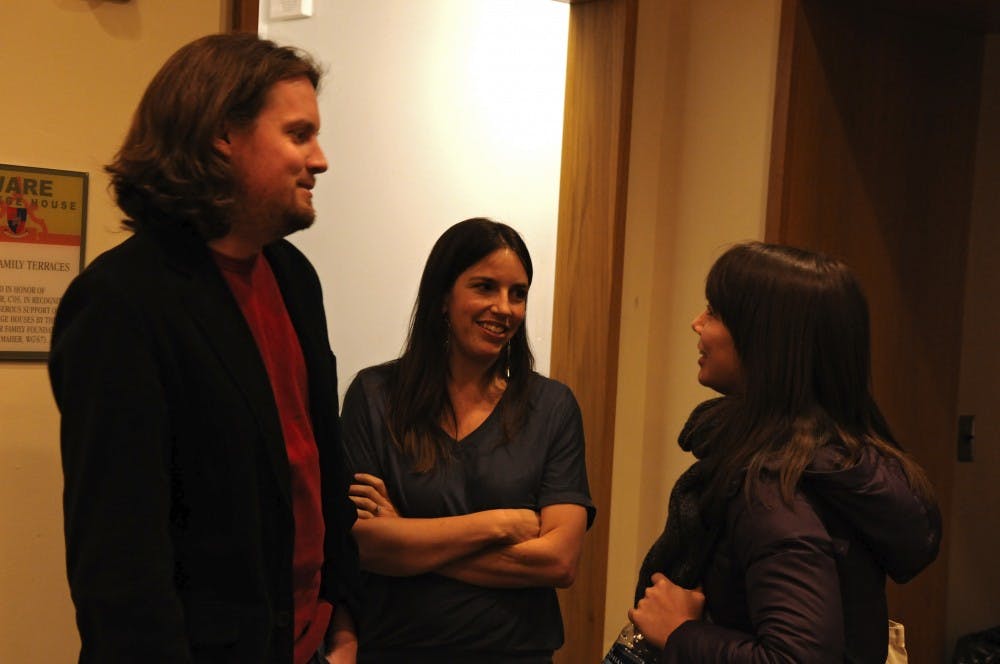
Jessica Chevallier was a 4.0-GPA student at Kern Valley High School in California. Her grades and her smarts didn’t stop her from applying to some of America’s top universities — but a $50 application fee did.
On Wednesday night, Ware College House hosted the East Coast premiere of First Generation, a documentary that follows the lives of four first-generation college applicants.
Ware House Dean Utsav Schurmans organized yesterday’s screening as a follow-up to last semester’s Ware panel on socioeconomic diversity.
Like Chevallier in the film, many Penn students have faced similar challenges when they applied to Penn.
College sophomore Afuah Frimpong said the presentation hit home for her. “I … come from a low income background,” she said. Watching the movie “was like I was living it.”
Jaye Fenderson, one of the documentary’s directors, said she began to recognize the severity of socioeconomic inequality in higher education when she worked as a Columbia University admissions after graduating from Columbia in 2000.
“It was really difficult for the low-income students to articulate their abilities,” she said. As she read through thousands of applications, Fenderson “felt that a lot of students were falling through the cracks [who] would’ve been very successful at Columbia.”
Eventually, she left admissions and turned to film production, looking to start a national conversation.
After producing a critically acclaimed yet poorly rated ABC reality show, “The Scholar” — which focused on low-income students and their stories — Jaye, along with her husband Adam, asked themselves: how do we reach a greater audience?
Their answer was to tell their stories through a documentary which could be shown nationwide.
Fenderson would later obtain a $25,000 grant — through a Twitter conversation — from the Lumina Foundation, which is dedicated exclusively to increasing the proportion of Americans with advanced degrees to 60 percent by 2025.
Dean of Admissions Eric Furda promoted the documentary and stressed its importance.
In universities, he said, the socioeconomic inequality conversation needs to be expanded.
“These conversations have been in isolated pockets,” Furda said. “There needs to be a facilitated conversation.”
Bill Schilling, Director of Financial Aid, said that Penn alone is not going to solve the problem. “It is a systemic problem,” he said.
He explained the documentary demonstrated a lack of informed mentorship at school and at home.
“The lack of information and … not having a mentor results in students making bad decisions,” Schilling said.
“The more people that see stuff like this, [the more] they’ll get involved. I do hope some policy makers get a hold of this.”
And policy change is what one Penn student is committed to.
College sophomore Natalie Gould, who is interested in pursuing educational policy, thought the film was successful in demonstrating barriers that prevent low income students from achieving educational success.
“There are not only barriers from being in a low income family but also from being surrounded by other low income students,” she said.
The event organizers encouraged everyone to visit their website and join the conversation online.
But don’t stop there, Jaye and Adam Fenderson say. “Mentor. Donate your time.”
This article has been updated to reflect that the Director of Financial Aid is Bill Schilling, not Bill Shilling.
The Daily Pennsylvanian is an independent, student-run newspaper. Please consider making a donation to support the coverage that shapes the University. Your generosity ensures a future of strong journalism at Penn.
DonatePlease note All comments are eligible for publication in The Daily Pennsylvanian.








